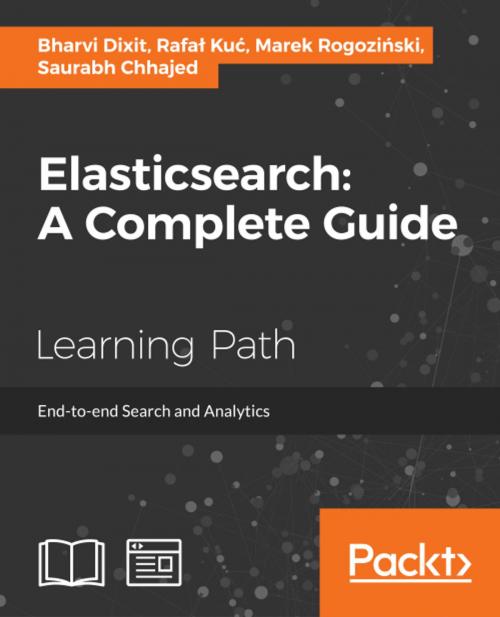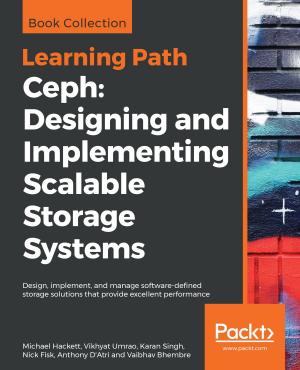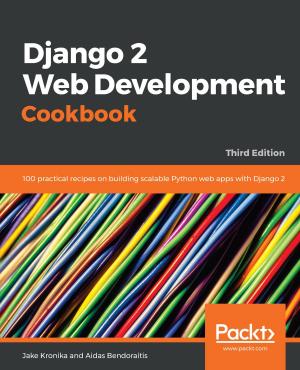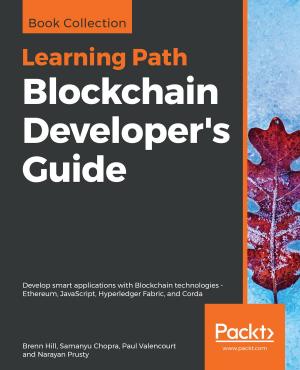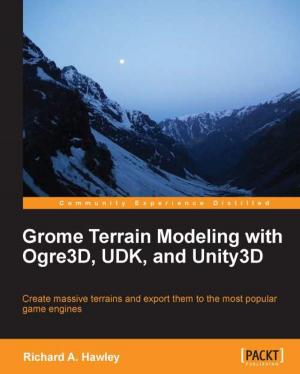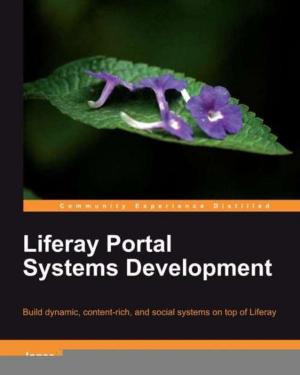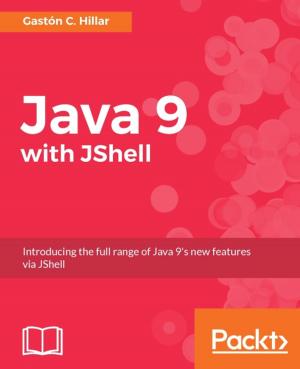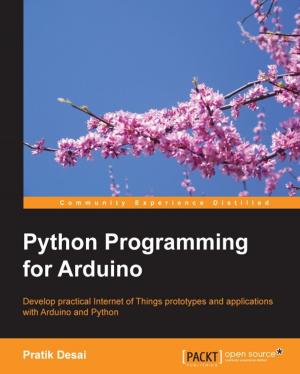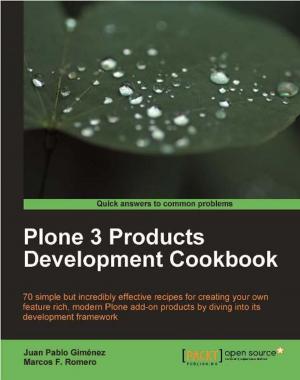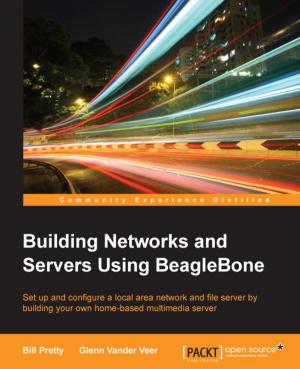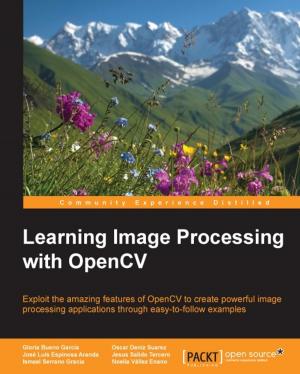| Author: | Bharvi Dixit, Rafal Kuc, Marek Rogozinski, Saurabh Chhajed | ISBN: | 9781787287396 |
| Publisher: | Packt Publishing | Publication: | January 31, 2017 |
| Imprint: | Packt Publishing | Language: | English |
| Author: | Bharvi Dixit, Rafal Kuc, Marek Rogozinski, Saurabh Chhajed |
| ISBN: | 9781787287396 |
| Publisher: | Packt Publishing |
| Publication: | January 31, 2017 |
| Imprint: | Packt Publishing |
| Language: | English |
End-to-end Search and Analytics
About This Book
- Solve your data analytics problems with the Elastic Stack
- Improve your user search experience with Elasticsearch and develop your own Elasticsearch plugins
- Design your index, configure it, and distribute it — you'll also learn how it works
Who This Book Is For
This course is for anyone who wants to build efficient search and analytics applications. Some development experience is expected.
What You Will Learn
- Install and configure Elasticsearch, Logstash, and Kibana
- Write CRUDE operations and other search functionalities using the Elasticsearch Python and Java Clients
- Build analytics using aggregations
- Set up and scale Elasticsearch clusters using best practices
- Master document relationships and geospatial data
- Build your own data pipeline using Elastic Stack
- Choose the appropriate amount of shards and replicas for your deployment
- Become familiar with the Elasticsearch APIs
In Detail
Elasticsearch is a modern, fast, distributed, scalable, fault tolerant, open source search and analytics engine. It provides a new level of control over how you can index and search even huge sets of data. This course will take you from the basics of Elasticsearch to using Elasticsearch in the Elastic Stack and in production.
You'll start with the very basics: Elasticsearch terminology, installation, and configuring Elasticsearch. After this, you'll take a look at analytics and indexing, search, and querying. You'll learn how to create maps and visualizations. You'll also be briefed on cluster scaling, search and bulk operations, backups, and security.
Then you'll be ready to get into Elasticsearch's internal functionalities including caches, Apache Lucene library, and its monitoring capabilities. You'll learn about the practical usage of Elasticsearch configuration parameters and how to use the monitoring API. You'll discover how to improve the user search experience, index distribution, segment statistics, merging, and more.
Once you have mastered this, you'll dive into end-to-end visualize-analyze-log techniques with Elastic Stack (also known as the ELK stack). You'll explore Elasticsearch, Logstash, and Kibana and see how to make them work together to build fresh insights and business metrics out of data. You'll be able to use Elasticsearch with other de facto components in order to get the most out of Elasticsearch. By the end of this course, you'll have developed a full-fledged data pipeline.
This Learning Path combines some of the best that Packt has to offer in one complete, curated package. It includes content from the following Packt products:
- Elasticsearch Essentials
- Mastering Elasticsearch, Second Edition
- Learning ELK Stack
Style and approach
This course aims to create a smooth learning path that will teach you how to effectively use Elasticsearch with other de facto components and get the most out of Elasticsearch. Through this comprehensive course, you'll learn the basics of Elasticsearch and progress to using Elasticsearch in the Elastic stack and in production.
End-to-end Search and Analytics
About This Book
- Solve your data analytics problems with the Elastic Stack
- Improve your user search experience with Elasticsearch and develop your own Elasticsearch plugins
- Design your index, configure it, and distribute it — you'll also learn how it works
Who This Book Is For
This course is for anyone who wants to build efficient search and analytics applications. Some development experience is expected.
What You Will Learn
- Install and configure Elasticsearch, Logstash, and Kibana
- Write CRUDE operations and other search functionalities using the Elasticsearch Python and Java Clients
- Build analytics using aggregations
- Set up and scale Elasticsearch clusters using best practices
- Master document relationships and geospatial data
- Build your own data pipeline using Elastic Stack
- Choose the appropriate amount of shards and replicas for your deployment
- Become familiar with the Elasticsearch APIs
In Detail
Elasticsearch is a modern, fast, distributed, scalable, fault tolerant, open source search and analytics engine. It provides a new level of control over how you can index and search even huge sets of data. This course will take you from the basics of Elasticsearch to using Elasticsearch in the Elastic Stack and in production.
You'll start with the very basics: Elasticsearch terminology, installation, and configuring Elasticsearch. After this, you'll take a look at analytics and indexing, search, and querying. You'll learn how to create maps and visualizations. You'll also be briefed on cluster scaling, search and bulk operations, backups, and security.
Then you'll be ready to get into Elasticsearch's internal functionalities including caches, Apache Lucene library, and its monitoring capabilities. You'll learn about the practical usage of Elasticsearch configuration parameters and how to use the monitoring API. You'll discover how to improve the user search experience, index distribution, segment statistics, merging, and more.
Once you have mastered this, you'll dive into end-to-end visualize-analyze-log techniques with Elastic Stack (also known as the ELK stack). You'll explore Elasticsearch, Logstash, and Kibana and see how to make them work together to build fresh insights and business metrics out of data. You'll be able to use Elasticsearch with other de facto components in order to get the most out of Elasticsearch. By the end of this course, you'll have developed a full-fledged data pipeline.
This Learning Path combines some of the best that Packt has to offer in one complete, curated package. It includes content from the following Packt products:
- Elasticsearch Essentials
- Mastering Elasticsearch, Second Edition
- Learning ELK Stack
Style and approach
This course aims to create a smooth learning path that will teach you how to effectively use Elasticsearch with other de facto components and get the most out of Elasticsearch. Through this comprehensive course, you'll learn the basics of Elasticsearch and progress to using Elasticsearch in the Elastic stack and in production.
